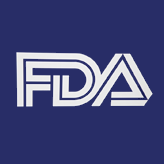FDA Approves Eribulin for Advanced Liposarcoma Treatment
The US Food and Drug Administration announced the approval of eribulin (Halaven) for the treatment of unresectable, metastatic liposarcoma in patients who have received prior chemotherapy with an anthracycline.
Eribulin is the first drug in liposarcoma to show a survival improvement

The US Food and Drug Administration (FDA) announced the approval of eribulin (Halaven) for the treatment of unresectable, metastatic liposarcoma in patients who have received prior chemotherapy with an anthracycline.
The FDA granted a Priority Review designation for the agent in September 2015; the application included both liposarcoma and leiomyosarcoma patients, though the new approval covers only liposarcoma.
“Halaven is the first drug approved for patients with liposarcoma that has demonstrated an improvement in survival time,” said Richard Pazdur, MD, of the FDA’s Center for Drug Evaluation and Research, in a press release. Eribulin is a microtubule dynamics inhibitor that acts as a cytotoxic agent.
The approval is based on results from a randomized, open-label, phase III trial comparing eribulin with dacarbazine. Results from the full trial were presented at the 2015 American Society of Clinical Oncology Annual Meeting in Chicago; it included 452 patients with liposarcoma and leiomyosarcoma, all of whom had been previously treated with at least two therapies including an anthracycline.
In the full cohort, the median overall survival with eribulin was 13.5 months, compared with 11.5 months with dacarbazine, for a hazard ratio of 0.768 (95% CI, 0.618-0.954; P = .017). Progression-free survival was similar between the two groups, at 2.6 months in both (P = .229). At 12 weeks, the progression-free survival rate was 33% for eribulin and 29% for dacarbazine.
The FDA cited a subgroup from this trial including only 143 patients with liposarcoma. In these patients, the median overall survival was 15.6 with eribulin and only 8.4 months with dacarbazine.
In the full study presented last year, dose reductions were required in 26% of eribulin patients and 14% of dacarbazine patients. Treatment-emergent adverse events were more common with eribulin, including those of grade 3 or 4. The most common adverse events included neutropenia, pyrexia, peripheral sensory neuropathy, and alopecia.
The presenting author, Patrick Schöffski, MD, MPH, of University Hospitals Leuven in Belgium, said at the time that this was the first phase III trial to show an overall survival benefit compared with an active agent. “The efficacy of available drugs for initial therapy of sarcomas is very unsatisfactory, and patients whose disease progresses despite two or more lines of treatment have a very poor prognosis,” he said.
Sarcoma Awareness Month 2023 with Brian Van Tine, MD, PhD
August 1st 2023Brian Van Tine, MD, PhD, speaks about several agents and combination regimens that are currently under investigation in the sarcoma space, and potential next steps in research including immunotherapies and vaccine-based treatments.